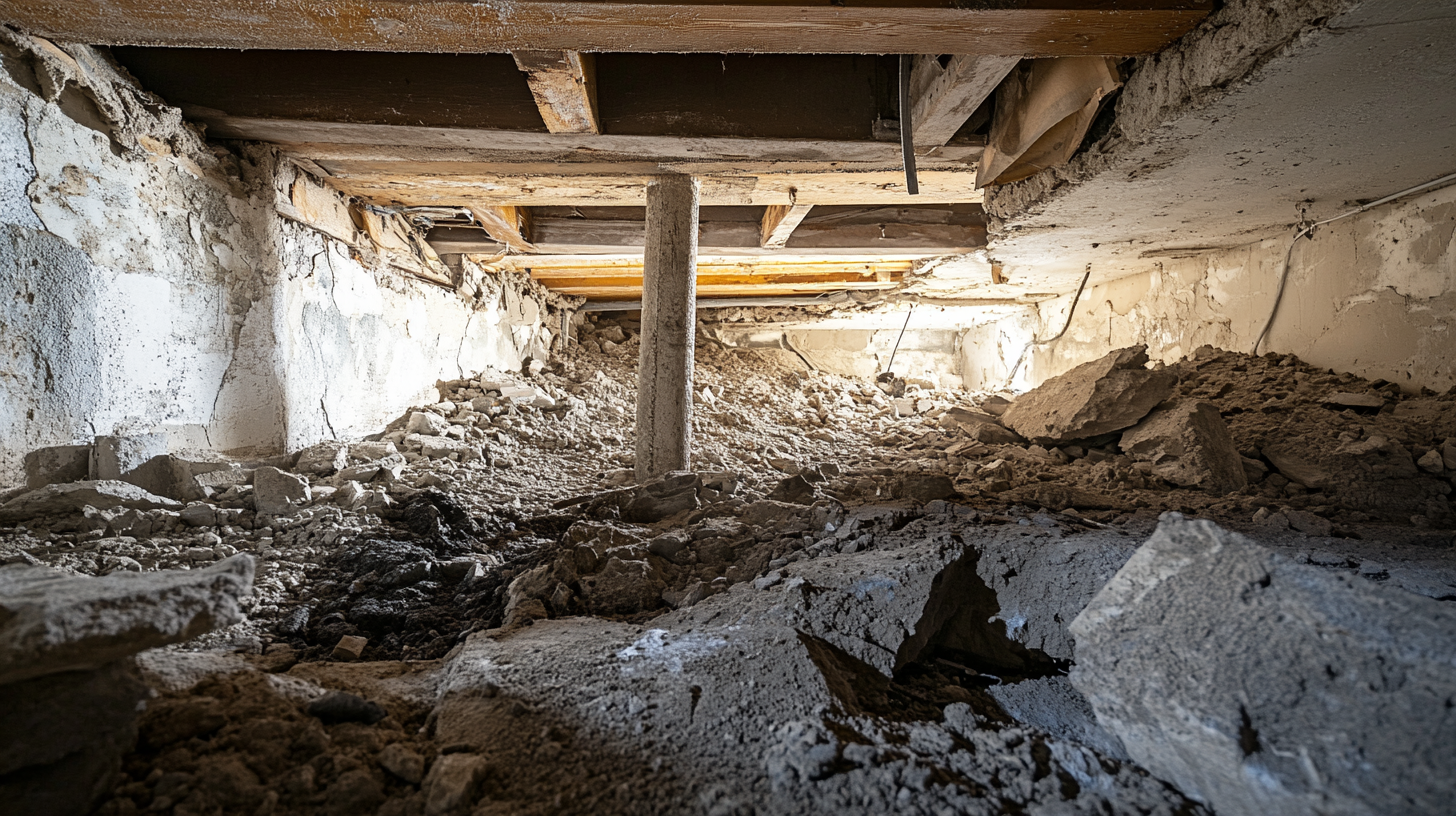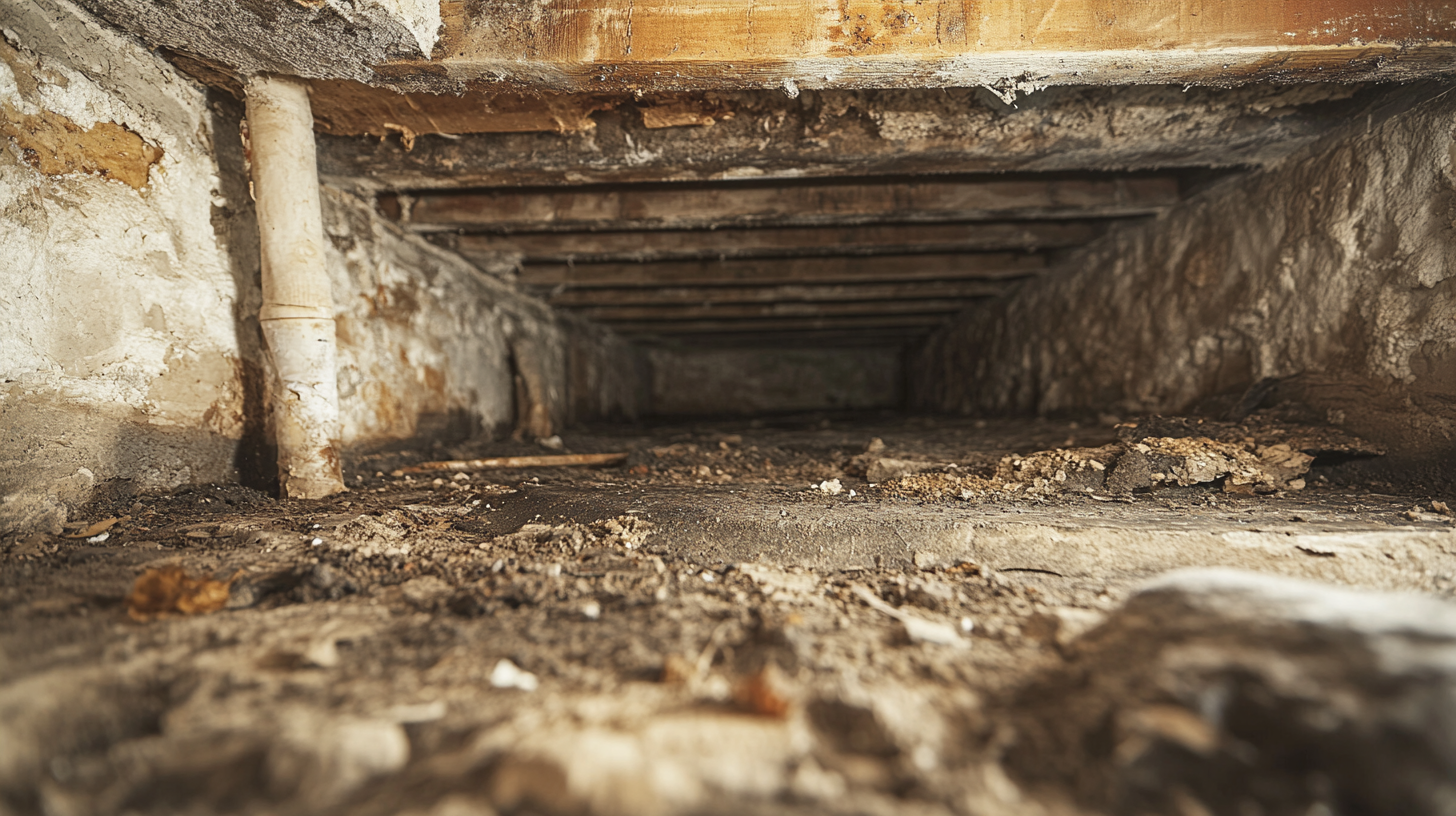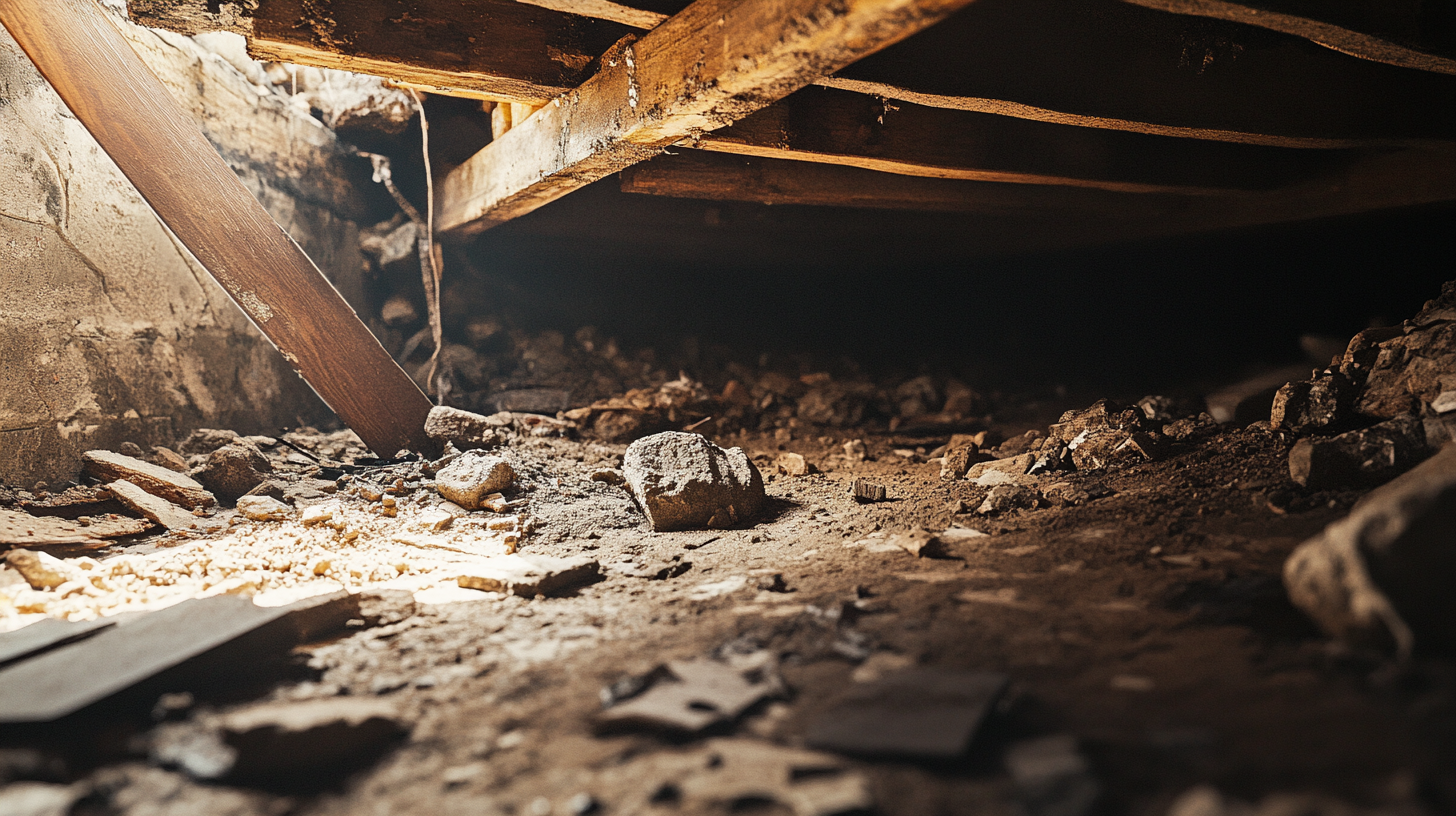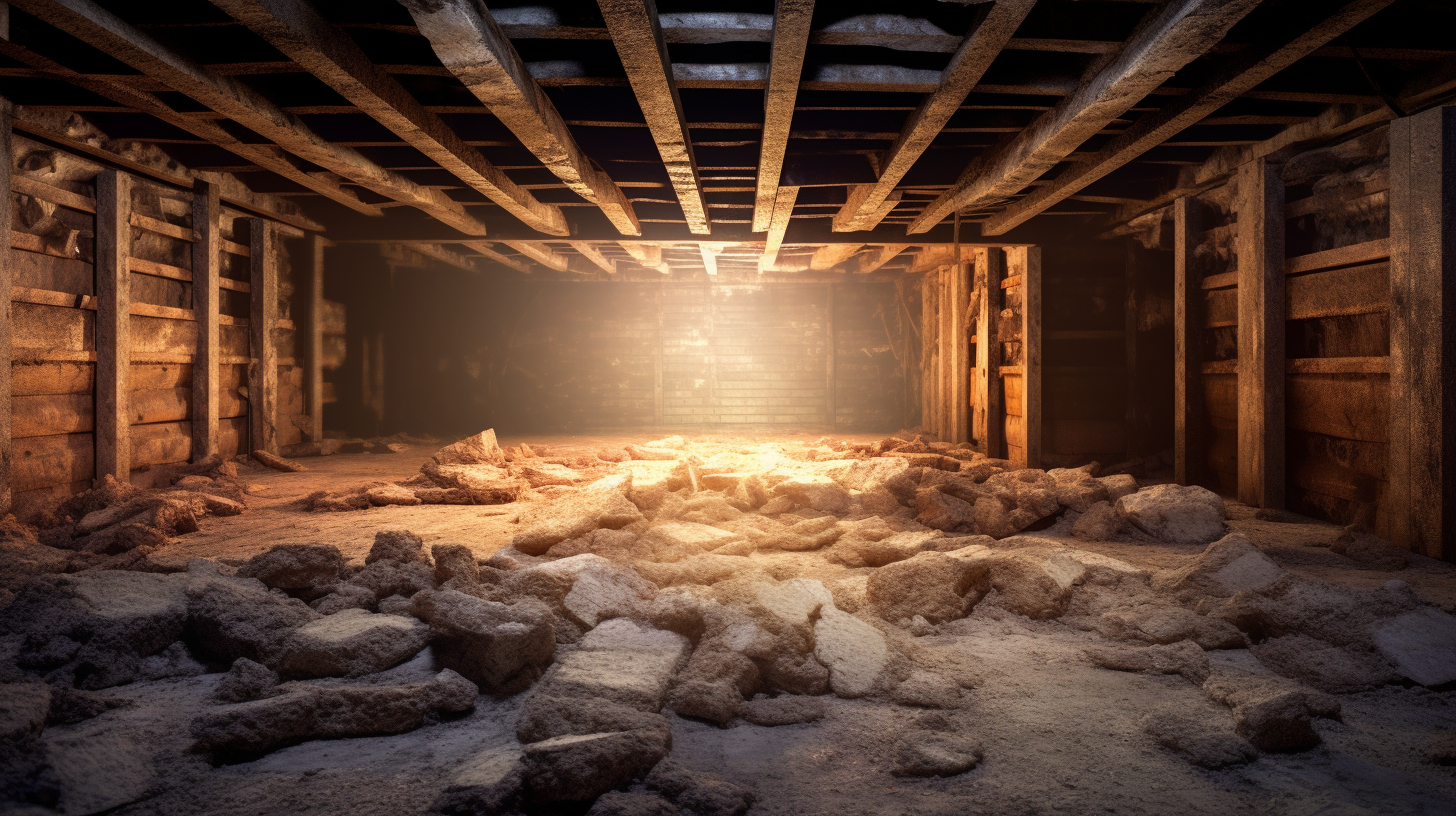Cleaning raw sewage in crawl spaces can be an extremely hazardous and unpleasant task that should never be taken lightly. The presence of harmful bacteria, viruses, and toxic gases in sewage poses significant health risks to those attempting to clean it without proper training and equipment. In such cases, seeking professional assistance becomes crucial to ensure the safety of both the individuals involved and the overall environment.
Health Risks and Contamination
Maintaining a clean and hygienic environment is essential for our overall well-being. However, certain situations can pose significant health risks and lead to contamination, jeopardizing our health and safety. Whether it's exposure to toxic chemicals, contaminated water sources, or unsanitary conditions, understanding the potential hazards and taking preventive measures is crucial.
One area where health risks and contamination are particularly concerning is in the handling of hazardous materials such as raw sewage. Raw sewage contains a plethora of harmful microorganisms, including bacteria, viruses, and parasites, which can cause severe illnesses and infections. Exposure to these pathogens can lead to gastrointestinal issues, respiratory problems, and skin infections. Furthermore, sewage may also contain toxic chemicals, such as pesticides or heavy metals, which can have long-term adverse effects on human health. Attempting to clean up raw sewage without professional assistance not only puts individuals at risk but also increases the chances of contaminating the surrounding environment, including water sources and the air we breathe.
To
minimize the health risks and prevent contamination, it is imperative to seek professional assistance when dealing with hazardous materials like raw sewage. Professional cleaners are equipped with the necessary training, expertise, and specialized equipment to handle such situations safely and effectively. They follow strict protocols and use appropriate protective gear to mitigate the risks associated with exposure to pathogens and toxins. Additionally,
professional cleaners have a thorough understanding of waste disposal regulations, ensuring that the contaminated materials are handled and disposed of in a manner that complies with environmental guidelines. By relying on professionals, we can protect our health, prevent contamination, and ensure a clean and safe living environment for ourselves and future generations.
Handling and Disposal of Waste
Proper handling and disposal of waste is an essential aspect of maintaining a clean and sustainable environment. Whether it's household waste, industrial byproducts, or hazardous materials, responsible waste management practices are crucial to minimize the negative impact on our surroundings and human health. Understanding the importance of proper waste handling and disposal is key to creating a healthier and more sustainable future.
When it comes to waste management, it's important to adhere to local regulations and guidelines. Sorting waste into appropriate categories, such as recyclables, organic waste, and hazardous materials, is the first step towards effective waste management. By separating waste, we can facilitate recycling and reduce the amount of waste sent to landfills. Hazardous materials, such as chemicals or biomedical waste, require special handling due to their potential harm to human health and the environment. Proper storage, labeling, and disposal methods are crucial to prevent leaks, spills, or contamination. Employing professional waste management services can provide peace of mind, as these experts possess the knowledge and resources to handle different types of waste safely and responsibly.
In addition to handling waste properly, the disposal stage is equally important. Landfills are commonly used for non-recyclable and non-biodegradable waste, but they can pose environmental risks if not managed correctly. Effective waste disposal methods include waste-to-energy processes, composting, and recycling facilities, which help reduce the volume of waste and minimize the strain on natural resources. By embracing sustainable waste disposal practices, we can reduce pollution, conserve energy, and contribute to a cleaner and healthier planet for ourselves and future generations.
In conclusion, responsible waste management is crucial for a cleaner and more sustainable environment. By adopting proper waste handling practices, such as sorting waste and utilizing professional waste management services, we can minimize the negative impact of waste on human health and the environment. Embracing sustainable disposal methods helps preserve natural resources, reduce pollution, and move towards a more sustainable future. Let us all take part in responsible waste management and contribute to creating a cleaner and healthier world.
Prevention of Cross-Contamination and Reinfection
Cross-contamination and reinfection are significant concerns when it comes to maintaining a clean and healthy environment. Whether it's in our homes, workplaces, or public spaces, taking preventive measures to avoid the spread of germs and pathogens is essential. By understanding the risks and implementing effective strategies, we can minimize cross-contamination and reduce the chances of reinfection.
One of the primary ways to prevent cross-contamination is through proper hand hygiene. Washing hands frequently with soap and water for at least 20 seconds helps remove dirt, germs, and viruses from our hands. Hand sanitizers with at least 60% alcohol content can be used when soap and water are not readily available. It's important to practice good respiratory hygiene as well, such as covering our mouths and noses with a tissue or the inside of our elbow when coughing or sneezing, to prevent the spread of respiratory droplets. Regular cleaning and disinfection of frequently touched surfaces, such as doorknobs, light switches, and countertops, is crucial to eliminate germs and reduce the risk of cross-contamination. By implementing these simple yet effective preventive measures, we can create a safer environment and reduce the likelihood of transmitting infections.
Another crucial aspect of preventing cross-contamination and reinfection is maintaining personal hygiene. Regularly washing clothes, especially after being in crowded or high-risk environments, helps remove any potential pathogens that may have attached to the fabric. Properly storing and handling food, including separating raw and cooked items and avoiding cross-contamination between them, is vital to prevent foodborne illnesses. Additionally, individuals who are sick or have symptoms of illness should stay home and avoid close contact with others to minimize the risk of spreading the infection. By practicing personal hygiene and taking appropriate precautions, we can play an active role in preventing cross-contamination and reinfection in our communities.
In conclusion, preventing cross-contamination and reinfection is crucial for maintaining a clean and healthy environment. By practicing good hand hygiene, implementing regular cleaning and disinfection practices, and maintaining personal hygiene, we can reduce the risk of spreading germs and pathogens. It is our collective responsibility to follow these preventive measures to protect ourselves and others, creating a safer and healthier environment for everyone. Let us prioritize prevention and work together to minimize the risk of cross-contamination and reinfection in our daily lives.
FAQs
Contact Trench Guys Today!
Trench Guys will do everything we can to ensure your experience with us is excellent.
Request A FREE Estimate
Request a Free Estimate Form
Checkout Recent Post




Got a Question? We’re Here to Help.
You can arrange an appointment or make an enquiry by phone or email, orget in touch to us via our contact form.



